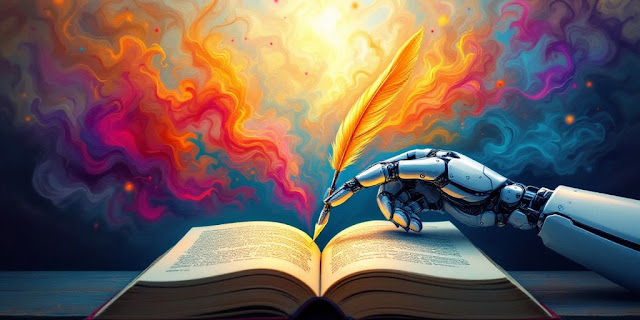In a groundbreaking study, researchers have found that artificial intelligence (AI) can write poetry that is preferred by readers over the works of legendary poets like William Shakespeare and Lord Byron. The study, conducted by scientists at Pittsburgh University, involved 2,300 participants who rated AI-generated poems as more emotional, creative, and beautiful than those penned by human poets. However, this preference diminished once readers were informed that the poems were created by a machine.
Key Takeaways
AI-generated poetry is rated higher in emotional impact and creativity compared to classic works.
The study involved 2,300 participants who were not poetry experts.
Readers' perceptions changed negatively when they learned the poems were AI-generated.
The Study's Findings
The research, published in the journal Scientific Reports, highlights a significant shift in how poetry is perceived in the age of AI. The study's lead author, Brian Porter, noted that AI poems are now considered "more human than human" due to their simplicity and emotional resonance. Participants were unable to distinguish between poems written by AI and those by renowned poets, suggesting that AI has reached a level of sophistication that challenges traditional notions of authorship in poetry.
The Role of AI in Creative Writing
AI's ability to generate poetry stems from advanced algorithms that analyse vast amounts of text data. These systems employ deep learning techniques to produce verses that mimic human creativity. The implications of this technology extend beyond poetry, raising questions about the future of creative professions as AI continues to evolve.

The Emotional Disconnect
Interestingly, while AI-generated poems received high ratings for their emotional content, this perception changed when readers were informed of their origin. This phenomenon raises important questions about the nature of creativity and emotional connection in art. Can a poem created by a machine truly resonate with human experiences, or is the emotional impact merely an illusion?
The Future of AI Poetry
As AI continues to improve, the boundaries between human and machine-generated art may blur further. Projects like CuratedAI showcase the potential for AI to contribute to literary magazines, while anthologies of AI-written poetry are beginning to emerge. However, critics argue that without genuine emotional experience, AI poetry may lack the depth and authenticity that characterises human creativity.
Conclusion
The study's findings mark a pivotal moment in the intersection of technology and art, challenging our understanding of creativity and authorship. As AI continues to advance, it will be crucial to explore the implications of machine-generated poetry on the literary landscape and the broader cultural context. The question remains: can AI truly capture the essence of human emotion in its verses, or will it always fall short of the profound experiences that inspire great poetry?
Sources
Can AI Write Authentic Poetry? | The MIT Press Reader, The MIT Press Reader.
Artificial Intelligences Are Writing Poetry For A New Online Literary Magazine, Popular Science.
First ever AI-written poetry anthology is bleak and alarming, New York Post.
How AI is changing writing - The Washington Post, The Washington Post.


